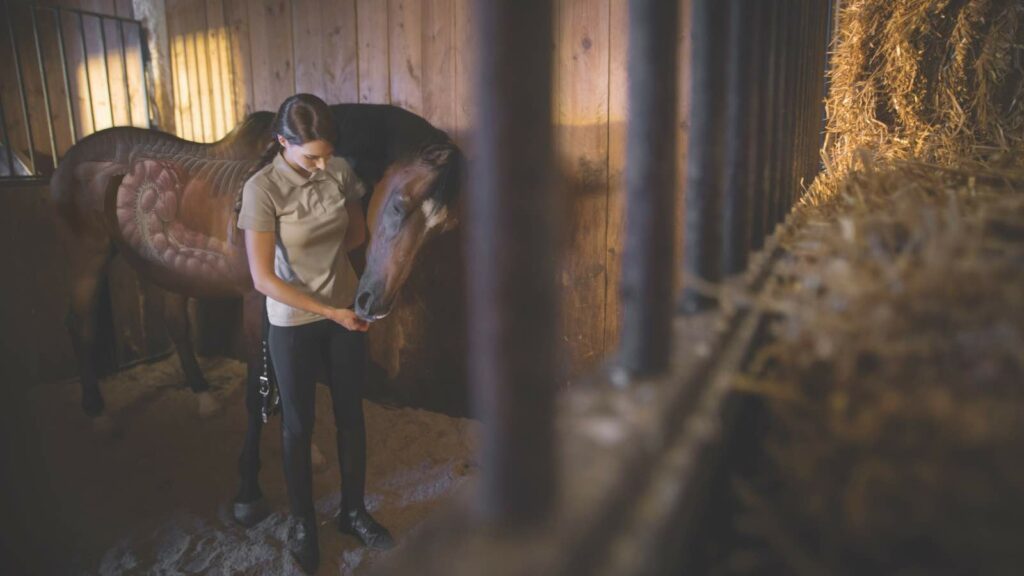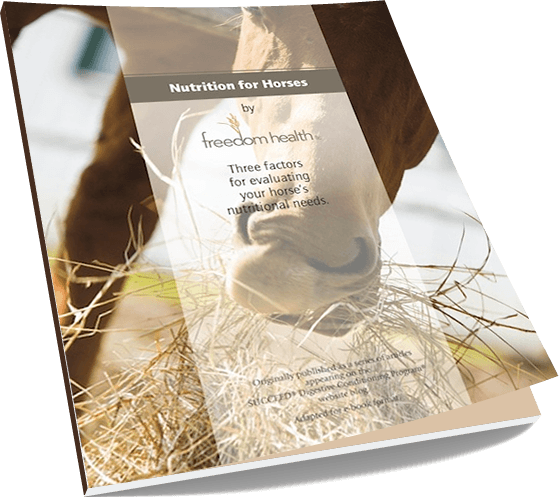Colic is the leading medical cause of death in horses. Technically, colic refers to pain in a horse’s abdomen, although colic episodes typically reflect conditions of the colon.
While colic can include a simple blockage, a spasm in the colon/gas buildup, or torsions in the digestive tract, the majority of colic episodes are idiopathic, or “of unknown origin.” In other words, we don’t know exactly what causes a horse to colic in most cases.
In reality, colic is often a direct result of diet and may be largely preventable.
Some types of colic in horses include:
Idiopathic
No root cause determined. (Accounts for over 80% of all colics.) This includes:
Gas (spasmodic)
Excess fluid or gas, often caused by the over-fermentation of food in the hindgut, builds up in the digestive tract of a horse. The resulting pressure and possible inflammation along the gastrointestinal line causes discomfort for the horse.
Impaction
The result of an accumulation in a horse’s colon of sand, dirt, feed, or other indigestible material. This blockage makes if difficult or impossible for a horse to properly dispose of waste.

Non-ideopathic
Cause is known. These include:
Intussusception
Most often caused by tapeworms and other parasites, this is also a very dangerous form of colic whereby the intestine effectively slides like a telescope within a portion of itself. The blood supply can also be cut off, creating a blockage.
Gastric rupture
Relatively rare, a gastric rupture can occur when an impaction reaches the horse’s stomach or gas build-up causes the horse’s stomach to dilate.
Strangulation/torsion
One of the most lethal forms of equine colic. A twist in the colon or small intestine of a horse which may also cause the blood supply to be cut off, resulting in necrotic tissue.
Feeding and Management Can Induce Colic in Horses
A horse’s natural diet is made up of grass, leaves, and bark, yet because of the performance demands put on today’s horses, they are often fed processed grains and sweet feeds that are high in carbohydrates. This can lead to hindgut acidosis, resulting in a lower pH in the colon and cecum. This means a higher level of acidity, which can modify the delicate microbial balance in the hindut and may compromise the mucosal lining of the colon. Eventually, colonic ulcers form, which may allow endotoxins to enter the blood stream, restricting blood flow to the colon and small intestine. Tissue may eventually die, resulting in food blockages and induced colic.
In truth, the exact sequence of events is unknown. But there is a significant amount of research that shows a connection between feeding horses grain rich in simple carbohydrates and conditions that can lead to colic. Veterinarians, register or login to the SUCCEED Veterinary Center to read more about this research.
Reduce the Risk for Horses to Colic
Colic is an epidemic in barns due to modern day practices in feeding and caring for horses, but induced cases of colic in horses may be avoided by preventing the root causes. A few measures you can take include:
- Feed smaller but more frequent meals, which allows starches to digest before reaching the equine hindgut, preventing hindgut acidosis.
- Increase turnout, reduce feed concentrates and add more quality forage
- Slow food intake by adding chaff (chopped hay) to meals to help reduce your horse’s risk for colic.
- Provide additional digestive support, such as a feed supplement including polar lipids, beta glucan, nucleotides and yeast to maintain health naturally.
While all these more natural equine management techniques may not be practical due to constraints of time and resources, any improvement to your feed system can help your horse perform at its best.
Take this short survey to assess your horse’s digestive health.
For more information on types of colic, how colic is induced, recognizing early signs, and feeding and management tips for reducing colic risk, visit the Crusade Against Equine Colic.

FREE eBook:
Nutrition for Horses
Three factors for evaluating
your horse’s nutritional needs.
